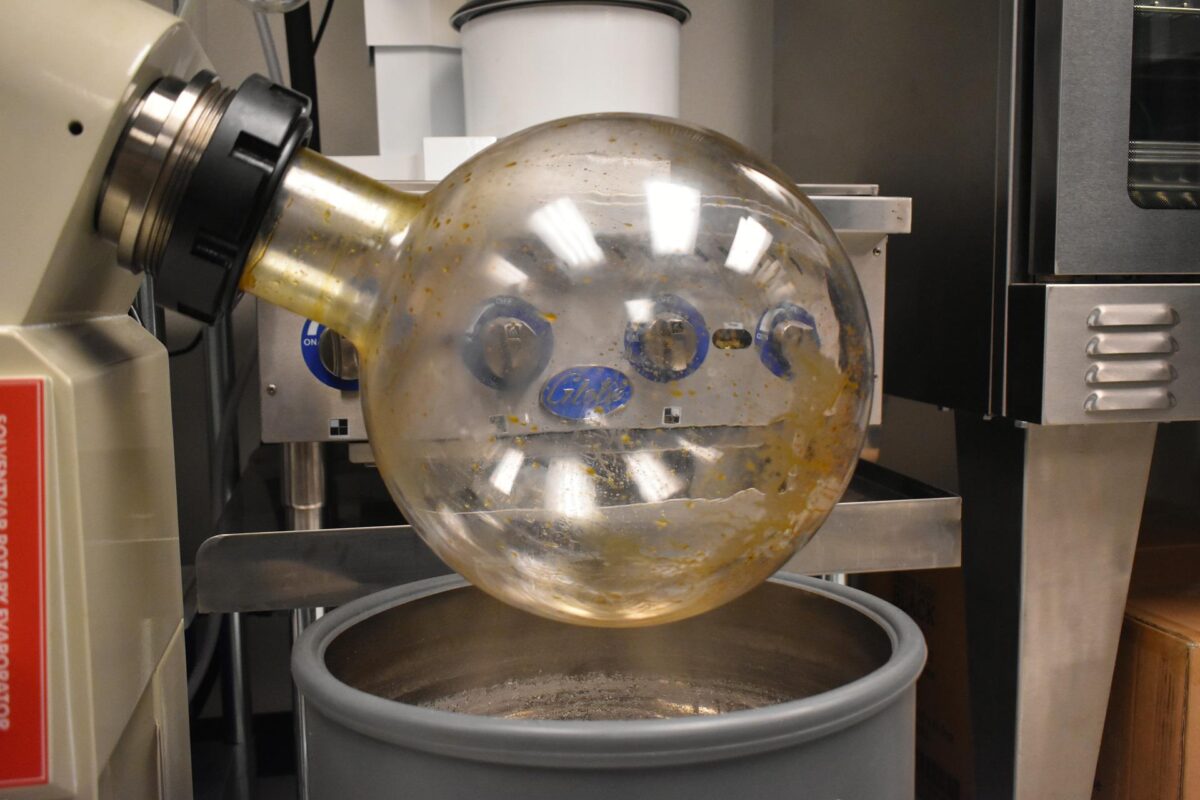
What is Cannabis Extraction?
Extraction Methodologies
Cannabis extraction is a process in which the active ingredients in the cannabis plant are extracted to create a more potent cannabis product, such as concentrates or edibles. Processed cannabis products can be liquids, solids, or semisolids, and there are many different kinds of cannabis extraction, each with their own uses and benefits.
CO2 Extraction
- Plant matter is first ground and then placed in an extraction tube. Utilizing CO2 that has sustained high pressure and high temperatures thereby creating a supercritical liquid, the supercritical CO2 is pushed into the tube containing the grounded plant matter. When the plant material and supercritical CO2 combine, the supercritical CO2 pulls the trichomes and terpene oils/waxes out of the plant matter, and the Co2 and plant matter solution separate. The CO2 is recycled through a condenser and the extracted material is sent to a collection receptacle.
Ethanol Extraction
- Ethanol Extraction is one of the simplest ways to create extractions. The simple procedure and the low flammability of the ethanol makes this form of extraction relatively safe.
- The legal requirements of ethanol storage at a cannabis facility are much more lenient compared to other extraction methods. This allows the facility to keep more ethanol stored in the facility while meeting fewer requirements, allowing the user to extract large volumes of cannabis at once.
- If ethanol extraction is completed properly, ethanol extraction can eliminate the need for a dewax or winterization.
- Great for creating for full spectrum hemp extracts and tinctures.
Hydrocarbon Extraction (Propane/Hexane/Butane)
- Hydrocarbons are a class of organic compounds that contain only hydrogen and carbon atoms.
- Plant matter is first ground and then placed into an extraction tube. Utilizing a hydrocarbon that has undergone pressure and high temperature, the hydrocarbon gas is pushed into the tube containing the grounded plant matter where it breaks down the trichomes and dissolves part of the plant material, leaving a liquid extraction. The extracted product is placed into a vacuum oven to purge the product, removing the majority of the residual solvent used. Commercially, hydrocarbon extraction is beneficial for two main reasons: 1) It is a fast extraction process, which can be completed within a few hours; and 2) It has a need for less pressure compared to other methods because the essential oils in the plant matter easily bind to the hydrocarbon solvent.
- This is a preferable extraction method because the extracted oil using this method can be highly potent and targeted to capture one specific cannabinoid.
- Hydrocarbon equipment is also much less expensive than equipment needed for CO2 extraction methods.
- Closed-loop extractors are advantageous when using hydrocarbon solvents because the solvent is contained within the system, thereby improving safety by minimizing operator exposure to solvents and reducing the chance of fire or explosion.
- Closed-loop systems also provide greater control of process parameters, such as temperature and pressure, when compared to open systems.
- Hydrocarbons, like propane and butane, have been used since the 1970s for food extractions. Hydrocarbon extraction can produce a finished product with approximately 70-90% cannabinoids. Technologies used for extraction have acutely advanced as the demand for cannabis products have increased.
- Hydrocarbon extraction is the most efficient and cost effective method. An average extraction cycle lasts roughly an hour, which is comparable to an 8-10 hour CO2 Supercritical Extraction cycle.
- In a closed-loop system, BHO extraction is extremely safe. The plant’s essential oils easily attach to hydrocarbon solvents and require significantly lower pressures. Generally hydrocarbon extraction requires no more than 150 PSI while CO2 extractions often use 1,500 PSI or higher.
- Butane and propane used in a regulated C1D1 lab with certified extraction equipment is extremely safe. Since there is no spark involved in the process, there is no risk of combustion. C1D1 rooms are spark free and rapidly exchange air with intake and exhaust fans.
- C1D1 rooms come equipped with sensors, alarm lights, horns, and fulfill interlock requirements in national, state and local codes.
- Specialized equipment is installed in C1D1 rooms, such as blast proof lights and cameras. Gas sensors located within the room automatically trigger an alarm when gas is detected, and automatically turn on a heavy exhaust system, which removes any gasses present in the air.
- C1D1 rooms are balanced by trained engineers who ensure the environment within the room is safe for hydrocarbon extraction. The room is also usually thoroughly inspected by state officials, such as the fire department, to ensure compliance with C1D1 requirements.
Solventless Extraction (Rosin Press, Ice Water Extraction)
- Solventless extraction through Rosin Press is a simple method that can be used on a small or large scale depending on the size of the press machine. This method is conducted by extracting cannabinoids through heat and pressure. In the simplest terms, rosin is created by pressing two heated plates down onto each other with enough force to initiate and complete the extraction process.
- Ice Water Extraction is achieved by hand washing or machine washing. To meet the demands of a commercial facility, machine washed will be more efficient although smaller companies that focus on creating “craft” products will likely have a hand washed line for a higher price. Seemingly a simple process, ice water and plant material are combined in a vessel that then spins the product together causing the trichomes to break away from the plant material. On the bottom of the vessel a removable false bottom catches the trichome material. An attached additional vessel catches the ice water. This water can either be reused for most efficiency or disposed of.
Finishing & Refinement Techniques
- Distillation, when used, is the final stage of the extraction process. This process is used to purify the extracted material to create the purest form of the product. Many times, terpenes are reintroduced to the distilled product to provide a more flavorful end result. Distillate is most commonly used to make vape pens and syringes although this process can be used for dabbing/vaporizing.
- Winterization is a refinement process used to remove undesirable fats, waxes and lipids from extracts. This process purifies crude oil extracts, which increases the quality and flavor of the resultant oil. The process involves mixing cannabis extract with ethanol and then freezing the solution effectively solidifying the undesirable compounds. The solution is then passed through a filter separating wax, lipids, and fats from the oil. The last step is removing the ethanol from the solution.
- Vacuum Purging is the process of removing residual solvents from cannabis extracts and is generally associated with hydrocarbon extraction methods. This process involves using a vacuum to heat the product at less than atmospheric pressure to heat the molecules and release gas.
- Decarboxylation is a process that converts THCA to THC through heat and time. Although slight decarboxylation occurs in the curing and drying process, the majority of results occur through heat smoking the product or through vaporization.
Product Categories (Organized by Extraction Methodology)
Beverages
- Description of Product Category: Infused beverages come in many various forms and leave ample space for creativity. Creating flavorful beverages at various milligram amounts is a great way to expand the flavor profile of a carried line, such as infused sodas, juices, teas, coffees, and hot chocolate.
- Method(s) of Extraction:
- CO2 Extraction
Tinctures
- Description of Product Category: Tinctures are a wonderful way to get a 10mg dose, which is considered one dose, without having to consume an edible or full beverage. A simple drop under the tongue and the medicine is consumed. Tinctures are a wonderful option for those who utilize cannabis regularly for pain and aids to the effectiveness of topicals by attacking the issue through the bloodstream.
- Method(s) of Extraction:
- Ethanol Extraction
Edibles
- Description of Product Category: In some regulated states, edible sales have surpassed flower sales due to the many variations available and the appeal of not having to inhale smoke to ingest cannabis products. Made in forms, such as gummies, cookies, chocolates, and even ice cream, edibles are a great way to consume cannabis products.
- Method(s) of Extraction:
- Any type of extraction; Decarboxylation
Vaporizers
- Description of Product Category:
- Method(s) of Extraction:
- CO2 Extraction; Distillation
Topicals/Ointments
- Description of Product Category: Salves and ointments are often used to capitalize on the pain relief effects of cannabis. Topicals work through absorption into the skin and are the only method to specifically spot treatment for relief from issues, such as general pain, soreness, and inflammation.
- Method(s) of Extraction:
- Ethanol and CO2
Powder/Pressed Pills
- Description of Product Category:
Powder and pressed pills provide not only a discrete method of ingestion but also alleviate the need to eat a sugar-filled treat or smoke cannabis to feel an effect. - Method(s) of Extraction:
- CO2
Research
Leading Brands Produced by Hydrocarbon Extraction
- CSC
- Olio
Extraction Facility Designs
Facility Design 1 — Ohio Joint Facility (Cultivation + Processing)
Full Facility:
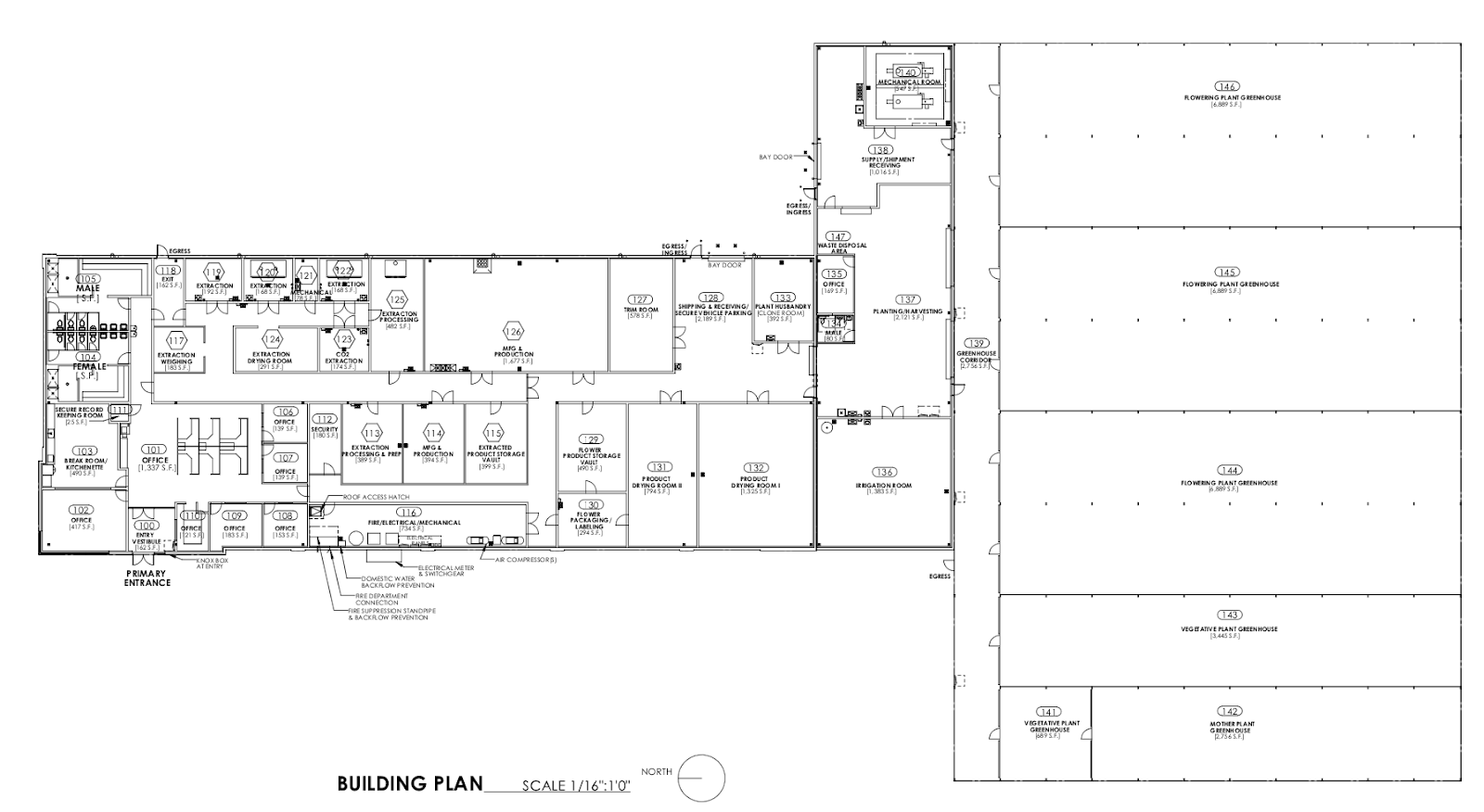
Processing Component of the Facility:

Facility Design 2 — Regina’s:
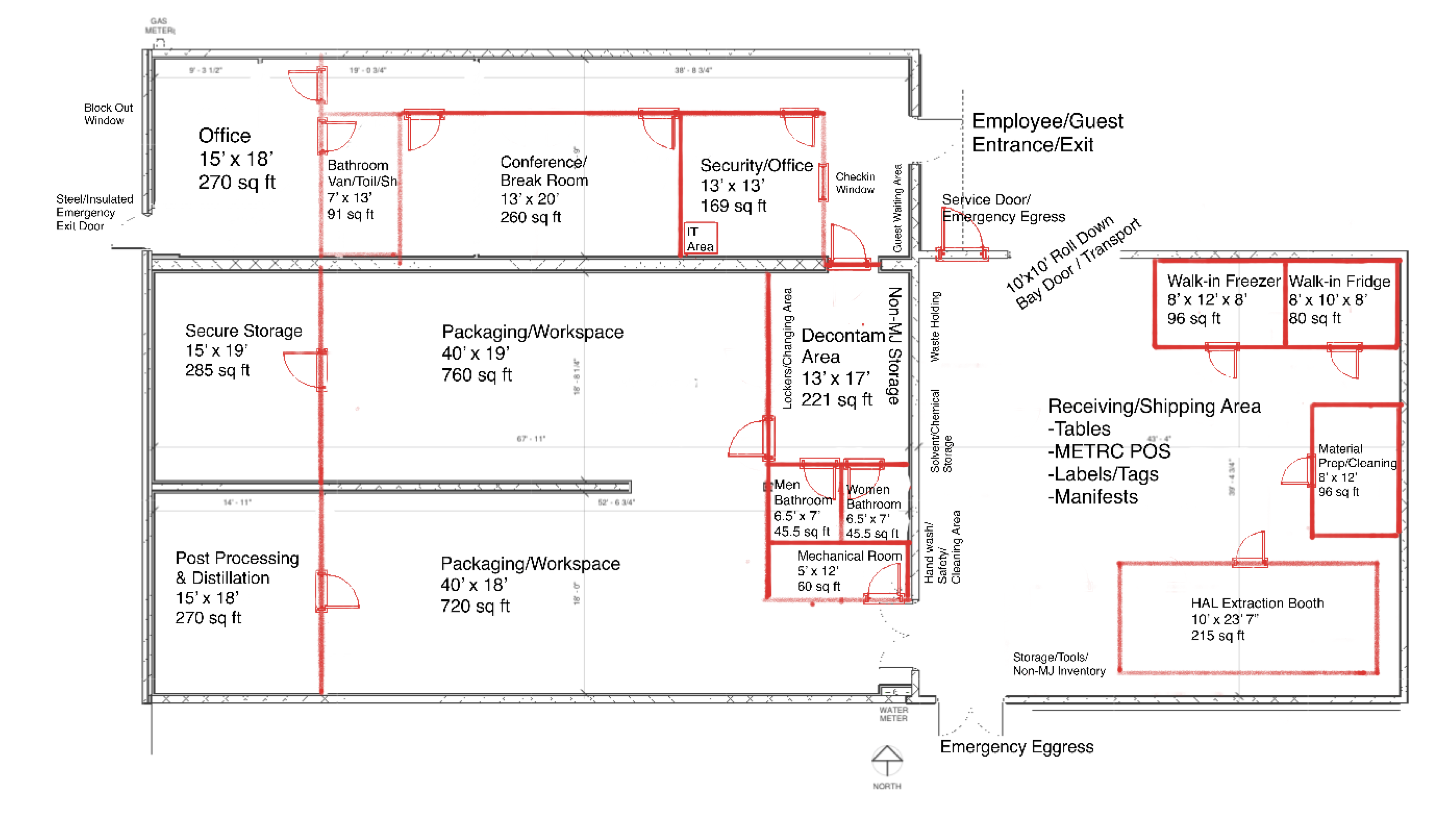
How Can Point Seven Group Help?
The team of cannabis consultants and professionals at Point Seven Group have worked extensively in the U.S. and international cannabis markets and are familiar with the unique challenges of the cannabis industry. Follow us on social media to stay up to date with more cannabis industry updates!
- Wayzata moves to open city-run weed dispensary
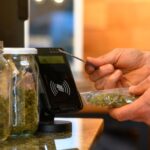 The City of Wayzata is considering opening its own recreational cannabis dispensary sometime next year. On Tuesday, Wayzata’s City Council and mayor approved a contract with Colorado-based consulting firm Point7 to draft a business plan for the possible municipal dispensary. This would be the city’s …
The City of Wayzata is considering opening its own recreational cannabis dispensary sometime next year. On Tuesday, Wayzata’s City Council and mayor approved a contract with Colorado-based consulting firm Point7 to draft a business plan for the possible municipal dispensary. This would be the city’s … - Indiana Cannabis Legalization: 2024 Update
 The Midwest has become a bustling hub for cannabis policy and industry, with states like Michigan, Illinois, and Ohio leading the charge in cannabis legalization. However, Indiana’s stance on cannabis remains a topic of significant interest and debate. As we delve into the status of …
The Midwest has become a bustling hub for cannabis policy and industry, with states like Michigan, Illinois, and Ohio leading the charge in cannabis legalization. However, Indiana’s stance on cannabis remains a topic of significant interest and debate. As we delve into the status of … - Cannabis Expungement and Social Equity: Proven & Failed Concepts
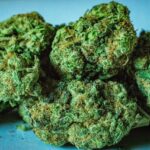 In the realm of cannabis expungement and social equity, examining both proven and failed concepts is crucial for understanding the complexities of justice reform and equity within the cannabis industry. Proven concepts include initiatives such as automatic expungement processes, which streamline the clearance of certain …
In the realm of cannabis expungement and social equity, examining both proven and failed concepts is crucial for understanding the complexities of justice reform and equity within the cannabis industry. Proven concepts include initiatives such as automatic expungement processes, which streamline the clearance of certain …

